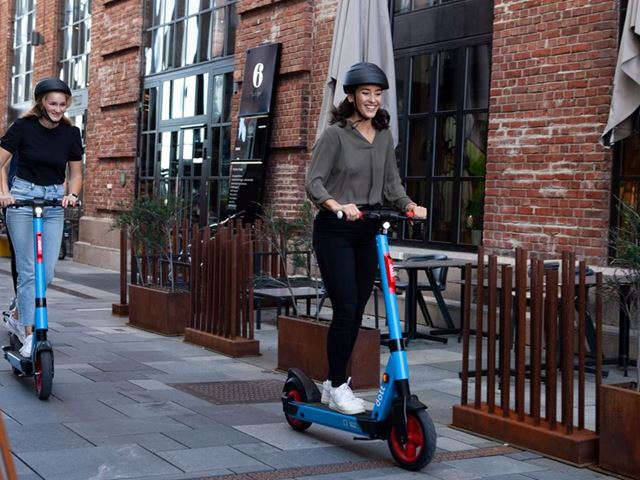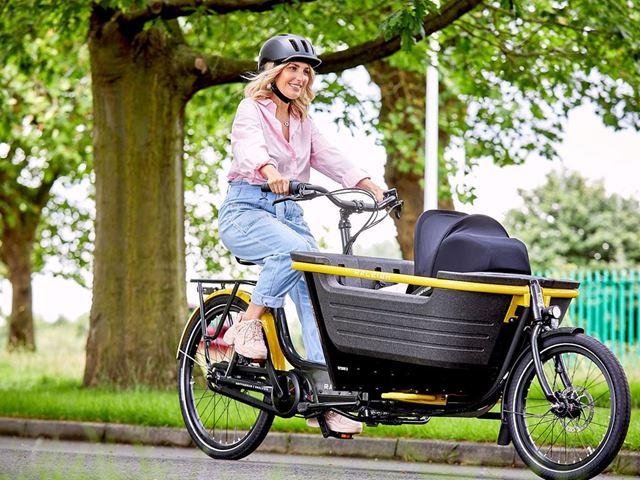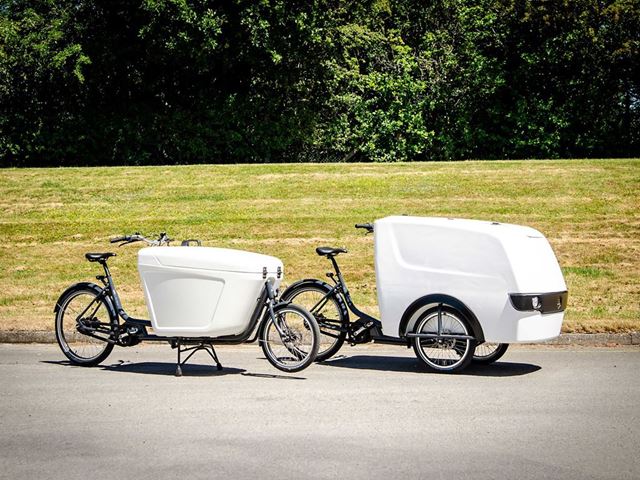
- Latest: Welcome to Auto Futures - Mobility News, Features, Exclusives and More...
- Latest: Subaru Europe Unveils the Brand's First All-Electric Compact SUV
- Latest: Lucid, Nuro & Uber Partner on Next-Generation Autonomous Robotaxi Service
- Latest: GM & Redwood Materials to Repurpose EV Batteries for Energy Storage
- Latest: Stellantis Discontinues Hydrogen Fuel Cell Technology Development Program
- Latest: Paving the way for an Electrified Future - L-Charge CEO
Car Free Days in Europe Send E-Scooter and Bike use Soaring - Dott and Raleigh
Adrian Smith
- Sep 23 2022

Car free days take place every year across Europe during EU Mobility Week in the month of September. On Sunday, September 18, Brussels and Paris held car free days to raise awareness of the availability of alternative transport choices. London held its car free day on Thursday, September 22.
"Cycling for us, is all about the joy, and we don’t want to force it, so to mark car free day we are doing what we do all year, sharing stories of people that have chosen to cycle rather than take the car," says Edward Pegram, Head of Marketing & Partnerships at Raleigh, one of the world's oldest bicycle companies.
The pan-European micromobility operator Dott reported a surge in demand for its service during car free days in Paris and Brussels. In the French capital, over 26,000 rides took place, up 8% on the previous week. New riders to Dott’s service was up 28% on the previous week.
In Brussels, 33,000 rides took place, a 78% increase on the previous week. Over 17,000 riders travelled a total of more than 121,000km. That's equivalent to more than 3 times around the globe.
Maxim Romain, Co-Founder and COO, Dott, says: “The rise in use of our vehicles this weekend shows that cars are a major barrier to micromobility. Our usage jumped when they were removed for the day in two of Europe’s capital cities, showing that we can encourage more sustainable transport choices by creating more car free spaces in our city centres.”

In London, Car Free Day is an opportunity for organisers to promote the expansion of pedestrianised and pedestrian-priority zones across the city.
Raleigh is seeking to encourage more cycling in UK cities, as lots of short car journeys can be done by bike.
"It's about getting out there and trying it. For Raleigh staff, we encourage people to cycle where possible by paying employees 20p per mile to cycle to work. Building cycling into your routine is a great way to get more active and save some money," explains Pegram.

An Affordable and Sustainable Alternative
In May, 2020, the UK government announced 'Gear Change' - £2 billion of new funding for cycling and walking. The investment is paying for hundreds of miles of protected bike lanes and low-traffic neighbourhoods.
"Infrastructure is vital to giving people the confidence to cycle without fear on UK roads, on street parking will also help as many people that would like to cycle cannot due to inadequate storage. The great news, is that we are seeing positive change on the back of the 'Gear Change' document," says Pegram.
The UK, like most countries, is also seeing a major rise in the use of electric bikes. Raleigh offers a wide range of e-bikes, from lightweight city bikes such as the Trace, to leisure and adventure bikes with up to 130 miles range such as the Motus and Centros.
"Electric bikes are a great way to travel and, with finance or cycle to work options, they can be affordable and a great sustainable alternative, even if it's just a few days per week," he notes.

Changing the Way we Move Around
E-bikes can also be used to clean up last mile delivery in Europe's cities.
"It's no secret post-pandemic that our cities are more congested than ever, the rise in online sales means more deliveries, and more deliveries mean more commercial vehicles on the roads. It has also given rise to the e-Cargo bike, usually electric assisted, an e-Cargo bike is a bike with a large storage area capable of carrying up to 100kg pay load. The e-Cargo bike is being adopted by many large logistics companies for deliveries in dense urban areas, although they only carry small loads, they offer eco friendly and efficient transport due to the routes they can take," says Pegram.
Finally, we asked Raleigh's Pegram what urban mobility and travel will look like by the end of the decade.
"We believe the future will be a mix of different modes of transport, from autonomous vehicles, lightweight electric, cargo bikes and more. If we are to meet the emission reduction targets set out by the government, the way we move around, particularly in cities will have to change," he predicts.
Popular Categories
